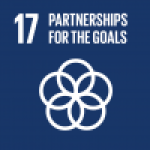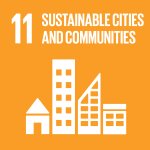
6 December 2023 – At its 6th Steering Committee in Geneva, the Systematic Observations Financing Facility (SOFF) has approved US$3.1 million for a UNDP-supported project strengthening the capture of climate data for early warning in Rwanda, with another $400K approved for peer advisory services by the Finnish Meteorological Institute.
The first UNDP-supported project to be approved by the SOFF, the investment will contribute to the rehabilitation and improvement of basic observation networks in Rwanda, thereby supporting more reliable weather forecasts, early warning, and planning for climate resilience. The benefits will extend beyond the local to the regional and global levels, with climate data to be fed into the Global Telecommunication System.
With around 70 percent of the population engaged in agriculture, Rwanda is acutely vulnerable to increasing seasonal variability and more unpredictable and extreme weather driven by climate change. The country is already experiencing increased rainfall and extremes, with shorter and more intense rainy seasons in the northern and western provinces, and drought conditions in the east in recent years.
As well as taking lives, the economic costs are high. In 2018, climate-related disasters cost the country more than $200 million in damage to property, crops, livestock and other losses.
The national meteorological agency, Meteo Rwanda, punctually measures, records, and shares meteorological variables within the country and globally. However, it is hindered by a range of factors, among them gaps in monitoring infrastructure; insufficient resources and capacity for weather station maintenance; non-digitized historical climate data; and ineffective data flow.
Strengthening meteorological and early warning services – including establishing an integrated early warning system – are referenced as a priority in the country’s National Environment and Climate Change Policy (2019) and updated Nationally Determined Contribution (NDC.
UNDP will provide technical support for effective implementation of the project, while also supporting Meteo Rwanda to mobilize further resources to scale-up climate information in the country.
The announcement of SOFF funding marks a continuation of efforts by the Government of Rwanda and its partners to improve weather and climate services. This includes projects supported by UNDP, the World Meteorological Organization, FAO, Finland, the UK, and Korea.
***
About the Systematic Observations Financing Facility (SOFF)
The Systematic Observations Financing Facility (SOFF) is a UN Fund co-created by World Meteorological Organization (WMO), United Nations Development Programme (UNDP) and the United Nations Environment Programme (UNEP) in 2021, to support countries for the provision of basic weather and climate data, a global public good. It exclusively focuses on closing the weather and climate data gap in countries with the most severe shortfalls in observations, prioritizing Least Developed Countries and Small Island Developing States, and is a foundational element and delivery mechanism of the UN Secretary General's Early Warning for All Initiative.
About Meteo Rwanda
Rwanda’s Meteorology Agency, Meteo Rwanda, is a government institution with the mission to provide accurate weather and climate information on time for the socio-economic development and well-being of the population.
About the UN Development Programme (UNDP)
The UN Development Programme (UNDP) is the leading United Nations organization fighting to end the injustice of poverty, inequality, and climate change. Working with a broad network of experts and partners in 170 countries, UNDP helps nations to build integrated, lasting solutions for people and the planet.
Since 2002, UNDP has completed 94 climate information and early warning system (CI/EWS) initiatives benefitting more than 9.4 million people in more than 64 countries. Learn more.
Benjamin Larroquette, Global Advisor Early Warning Systems and Regional Technical Specialist, UNDP benjamin.larroquette@undp.org



